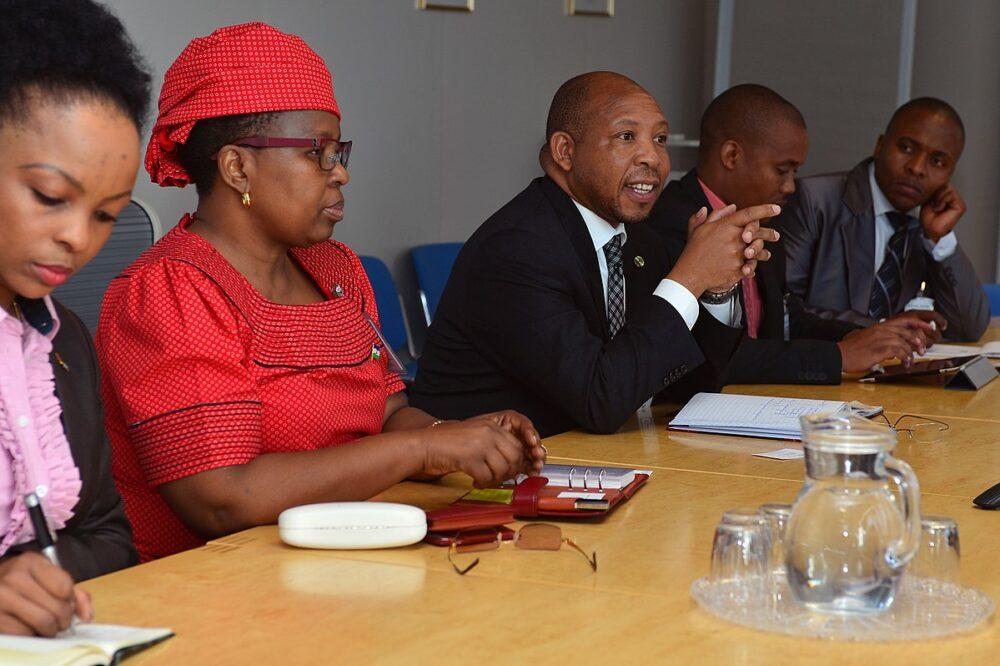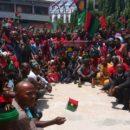Lesotho: Governments: 5; Reforms: 0

Despite almost a decade of successive governments pushing constitutional reforms, the country is set to hold elections under its old system.

Prime Minister Moeketsi Majoro leads the fifth government in Lesotho in ten years. Credit: Dean Calma / IAEA.
Lesotho is due to hold national elections in mid-October. The polls were expected to be held under a new constitutional regime resulting from a reform process that started in 2012. But the process has not yielded much fruit.
There’s widespread consensus – locally and internationally – that the constitutional kingdom of about 2.2 million people must reform its political system to overcome recurrent political instability. But successive governments have failed to bring about the necessary changes.
Now, with parliament legally required to dissolve by 14 July 2022 and elections held within three months, there is simply no time to undertake the reforms. Basotho look set to vote without the much-needed political changes.
The rocky path to reforms
The biggest deficiency of Lesotho’s political system is that the prime minister wields excessive powers. This flaw became apparent with the advent of fragile coalition politics in 2012.
In 2014-2015, then prime minister Thomas Thabane capriciously replaced the chief justice, president of the court of appeal, and the leadership of the security agencies. He prorogued parliament and changed most of the senior personnel of the civil service. This led calls for reform to grow louder while disagreements in the then tripartite coalition deepened. The party of then deputy prime minister Mothejoa Metsing withdrew its support for Thabane and the government, which had a hairbreadth majority in parliament, collapsed.
Following fresh elections, a new government came to power under Prime Minister Pakalitha Mosisili in March 2015. It made reforms its main agenda, but lacked a clear process for executing its programme. Instead, it was consumed by the assassination of the then commander of the Lesotho Defence Force, Maaparankoe Mahao, by rogue army operatives in June 2015 . The country was thrown into instability. The Southern African Development Community (SADC) intervened and established a commission of inquiry into the assassination and related matters. One of its key recommendations was that Lesotho undertake a comprehensive constitutional reform programme. Mosisili’s government made this one of its key objectives but again failed to make meaningful progress before it collapsed in 2017.
Lesotho held further elections, leading to a government led by Prime Minister Thabane for the second time. Following a failed reform process unilaterally designed by the government, Lesotho held its first multi-stakeholder talks in 2018. This paved the way for a second National Dialogue, held in November 2019. After this process, the National Reforms Authority (NRA) was established and made responsible for implementing the broad and often vague decisions of the dialogue.
In 2020, Thabane resigned following allegations that he was implicated in the murder of his ex-wife, Lipolelo Thabane. A new prime minister, Moeketsi Majoro, was sworn in. The reform programme continued, but exceeded its statutory lifespan without getting a single change to the constitution approved by parliament.
Before its disbandment in April 2022, the reforms authority completed its proposed constitutional changes in the 11th Amendment to the Constitution Bill, popularly known as the Omnibus Bill, which is now before parliament. It is not perfect, but it promises to arrest some longstanding constitutional problems. These include the excessive powers of the prime minister, a judiciary that is controlled by the executive, politicised security agencies, and a weak parliament.
What now?
Despite the hype about passing the Omnibus Bill before the October election, it is almost certain that parliament will not have passed all the changes before its dissolution in mid-July. It is expected therefore that Lesotho will hold its poll under the old political design.
The main hurdle is that the most critical provisions in the bill – including changes to the judiciary, parliament and security – need a two-thirds majority in both the Senate and National Assembly. Some changes require a referendum. Given the improbability of amending these most entrenched provisions, legislators could cherry-pick and pass the reforms that only need a simple majority vote. But these changes alone may not make any meaningful impact.
The only viable option, regrettably, is for parliament to avoid tampering with the Omnibus Bill and wait for a new parliament to resuscitate the entire reform programme after elections.
In the last ten years, Lesotho has had five different governments. And every time a government collapses, the reform programme follows suit. These efforts have also suffered from a lack of clarity over process. While there is some consensus about broad areas for reform – parliament, the constitution, judiciary, civil service, security and media – there is a lack of consensus about the process of undertaking such thoroughgoing changes to the constitution. The fact that the Omnibus Bill is now held up in parliament is emblematic of this problem. There was no plan about how different changes would be undertaken.
This article is republished from The Conversation under a Creative Commons license. Read the original article.
![]()






